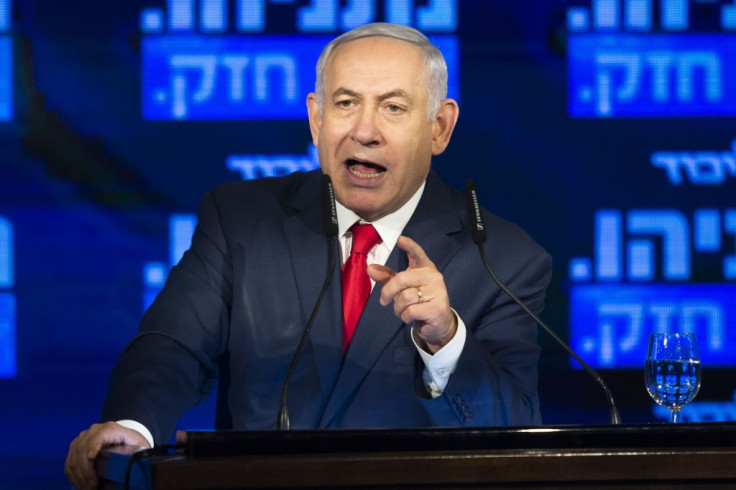Israeli Political Crisis Could Result In New Elections, Threatening Netanyahu

The Israeli government currently faces a political crisis which may trigger unprecedented elections, as Israeli Prime Minister Benjamin Netanyahu is struggling to form a governing coalition. This comes after Israel already held elections last month.
Netanyahu failed to meet a deadline Wednesday evening to form a governing coalition in order to prevent new elections or stave off calls for him to step down. He offered the Israeli Labor Party to join a coalition with his right-wing Likud party, but the Labor leadership turned down his proposal.
Part of the crisis is due to a dispute between Netanyahu and his ex-minister of Foreign Affairs, Avigdor Lieberman.
Lieberman founded the secular-nationalist Yisrael Beitenu party, and refuses to join a coalition with Netanyahu unless Netanyahu supports a bill that would force ultra-Orthodox Israeli males to serve in the army. The addition of the five Yisrael Beitenu party seats to the Netanyahu coalition would allow Netanyahu to form a governing coalition.
Currently, ultra-Orthodox Israeli males do not have to partake in mandatory military service, unlike the rest of the Israel population, and instead are allowed to focus on religious study. This has created resentment among many Israeli voters. Netanyahu needs the support of the Yisrael Beitenu party, but Lieberman's proposal could alienate Netanyahu's alliance with conservative Orthodox Israeli political parties.
"I am not against the ultra-Orthodox community. I am for the state of Israel. I am for a Jewish state but not a Halachic state," Lieberman wrote on Facebook Wednesday.
Another reason behind the political crisis is Netanyahu's own legal troubles as Netanyahu wants members of his coalition to pass legislation that would shield him from corruption investigations. Many of the Israeli political parties refuse to support this, which means that Netanyahu has little alternative than to court the Yisrael Beitenu party.
Netanyahu has been a constant figure in Israeli politics over the last four decades. He first became Prime Minister in 1996, then later served again as Prime Minister starting in 2009. He maintains a close and friendly relationship with President Donald Trump.
© Copyright IBTimes 2024. All rights reserved.





















